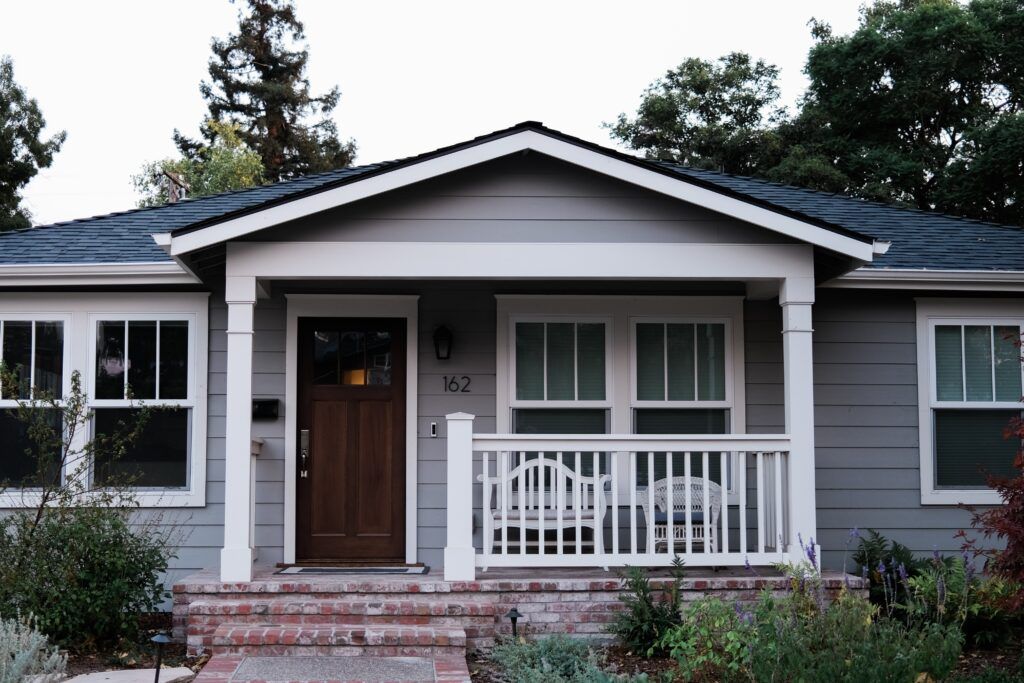What is an Appraisal Contingency?
Click here to browse our Real Estate Agent Directory and contact top-rated agents in your area

If you’re desperately trying to get a home under contract, your realtor may have suggested that you make an offer with no contingencies., including waiving the contingency. As a matter of fact, in March 2022 28% of buyers waived their appraisal contingency – a 5% increase from the previous month.
Before you agree to put up contingency-free offers you should make sure that you understand the pros and cons of appraisal contingencies. You should also understand how not having one can end up costing you quite a bit of cash.
What is an Appraisal Contingency?
Appraisal contingencies are put in place to protect the buyer from making a bad deal unknowingly. This provision allows the buyer to walk away from the contract if the appraisal, the decided value, of the home comes back lower than the agreed upon sale price. This appraisal gets performed during the mortgage underwriting process.
A lender will only provide a mortgage loan for the amount that the home is worth. So when if the appraisal shows that the home is worth less than the agreed-upon price, the seller would have to cover the difference up front.
Without a contingency, the buyer is forced to make a poor investment by purchasing a home for more than it is worth. Also, many buyers don’t have the cash to cover the overage amount the bank will not finance. Before we elaborate on this, however, let’s look at contingencies and appraisals in a little more detail.
What are contingent offers?
When making an offer to purchase a home, some buyers include contingencies in the contract. These provisions stipulate that the contract would only be valid if the specified conditions are met.
In addition to an appraisal contingency we explained above, real estate sale and purchase agreements can include several other contingencies, including:
- Mortgage contingency – this condition states that the sale is subject to the final approval of the buyer’s mortgage. If the financing fails for any reason, the buyer won’t be liable for purchasing the property.
- Inspection contingency – this contract stipulation allows the buyer to walk away from the sale contract if any issues such as mold, termites, and structural problems are discovered during the home inspection process. Alternatively, the contingency may be that the seller has to fix all issues before the sale can take place.
As we mentioned earlier, the appraisal contingency is based on the value returned by the appraisal of the property. So let’s look in more detail at how appraisals work and why are they needed in the first place.
What are appraisals?
An appraisal is a process of determining the fair market value of a property by inspecting its features and condition and comparing it against recent sales of similar properties nearby.
When is an appraisal required?
An appraisal will be required in nearly every situation when the home purchase is being financed or an existing loan is being refinanced. Lenders require appraisals because they help them determine the safe amount of money they can loan for a property. In case of a foreclosure, they need the assurance that they can sell the home and recoup the outstanding loan balance. Most target a loan-to-value ratio equal to or below 80%.
Because no lenders are involved in all-cash purchases, an appraisal would not be required. All-cash buyers, however, should also consider getting an appraisal to ensure the investment is worth the purchase price.
Who conducts the appraisal?
Properties are evaluated by state-licensed or certified , who are hired by the lender. Appraisers must have no relationship with the lender, the buyer or the seller. They also can’t have any financial interest in the transaction. Appraisers must follow the Uniform Standards of Professional Appraisal Practice (USPAP) guidelines throughout the appraisal process.
What is the appraisal process?
The appraisal gets ordered by the lender once you’ve agreed on a price and signed a purchase agreement with the seller. It entails the following steps:
- The bank requests the appraisal from a provider of their choice
- The appraiser visits the home and conducts the appraisal inspection
- The appraiser prepares the report based on the inspection and comp data
- If the appraised value meets the appraisal contingency, the mortgage terms are finalized and the closing is scheduled
What is an appraisal report?
All the information gathered by the appraiser is organized and presented in an appraisal report. Most appraisers use Fannie Mae’s Uniform Residential Appraisal Report, however, other formats are available too.
A typical full appraisal report includes the following information:
- Property data such as an address, lot size, square footage, description of the interior and exterior features and condition;
- Details about the neighborhood;
- Photos of the home front exterior and backyard;
- Details about three to five nearby comp sales along with photos of the properties;
- Streetmap of the subject property and the comp sales homes;
- Final assessment about the property’s market value.

What are the types of appraisals?
There are several types of appraisals and the price of each is commensurate with the level of complexity. Your lender gets to determine what type of appraisal will be done.
- Full appraisal – the most common type of appraisal, the full appraisal entails a complete interior and exterior walk-through of the home.
- Exterior-only appraisal – for this appraisal, the appraiser inspects only the exterior of the home and the surrounding community.
- Desktop appraisal – the appraiser never visits the property but uses online data such as tax records and sales comps to estimate the property value.
- Hybrid appraisal – the appraiser prepares the report based on the home inspection information gathered by another individual.
How much does an appraisal cost?
The cost of an appraisal usually varies between $250 and $400, depending on the market, the home, and the type of appraisal. An exterior-only appraisal, for example, would be cheaper than a full appraisal. Appraisals for government-backed mortgages, however, tend to be slightly more expensive.
Even though ordered by the lender, appraisals are paid for by the buyer as a part of their closing costs. Because the lender also gets to select the appraiser, the homebuyer has no control over the actual cost.
What is an appraisal waiver?
Buyers looking to expedite their closing may be allowed to bypass the appraisal when purchasing a home. Qualifying for an appraisal waiver, however, is complex as there are multiple requirements that must be met. Most often, appraisal waivers are granted to individuals looking to refinance an existing home loan.
The Appraisal Contingency and the Buyer
As we mentioned earlier, the appraisal contingency is put in place to protect the buyer. However, it may not always need to be invoked. Namely, if the appraised value is determined to be higher than the accepted offer, then the buyer can proceed confidently with the purchase, knowing that they are getting a good deal. The difference between the appraised market value and the contract price is in essence free equity for the new homeowner. However, not all buyers are so lucky, especially in hot markets.
What are the options if the appraisal is lower than the agreed-upon price?
It is not uncommon for high housing demand to drive the overall market values up, resulting in sale prices that are higher than the appraised values of the homes. The resulting deficit is called an appraisal gap and the purpose of the contingency is to address that.
The appraisal contingency gives buyers a few options when dealing with an appraisal gap.
Cover the Difference Out of Pocket
If you really want the home, you can still get it. Since no bank would issue a mortgage for an amount higher than the appraised value, however, you would be responsible for coming up with the cash to cover the difference up to the contract price. This money will go directly to the seller and it will be an additional cost to the down payment required for your loan.
For example, if the negotiated price for a home were $250,000 with 80% financing, and the appraisal came back at $230,000, the buyer will have to come up with $46,000 for a down payment (20% of $230,000) and $20,000 for the appraisal gap ($250,000 – $230,000).
Renegotiate the Sale Price of the Home
Depending on the market conditions and the amount of interest in the particular home, you can try and renegotiate the contract price with the seller using the lower appraisal to back up your new offer.
Walk Away From the Transaction
Since the seller is not obligated to renegotiate the price with you, you may have to simply walk away from the purchase if the parties are unable to agree on a new price.
The Appraisal Contingency and the Seller
Most sellers don’t like to deal with contingencies because they add uncertainty to the success of the transaction. And for a good reason. In March 2022 alone, 22% of purchase contracts with delayed settlements were caused by issues with the appraisal. While some sellers would be open to accepting certain contingencies depending on their specific situation, in general, they have the right to decline any offer that has contingencies.
What happens if the appraisal is higher?
If the appraisal comes back higher than the contracted price, the seller most likely won’t even find out about it. Even if they find out that they are leaving money on the table, there isn’t much they can do as they are contractually obligated to sell the house at the agreed upon price.
What happens if the appraisal is lower?
This depends on whether the contract included an appraisal contingency. If it didn’t, they have nothing to worry about – the buyer is contractually bound to purchase the home at the contract price regardless of the actual value of the property. If there was an appraisal contingency, the seller may end up losing the sale. The buyer has the option to walk away if the seller is unwilling to renegotiate a new price. In hot markets, however, many buyers would be willing to cover this appraisal gap out of pocket in order to get the home.

What is an appraisal guarantee?
An appraisal guarantee is a clause that protects the interests of the seller. It states that the buyer guarantees to cover the appraisal gap, or the difference between the appraised value and the contracted purchase price, out of pocket should the appraisal come back lower than expected.
The Takeaway
The appraisal contingency is the safety net that allows potential homebuyers to walk away from unfavorable deals. However, it could also be a deterrent to sellers, who are looking for a hassle-free closing. Before you decide whether to include an appraisal contingency with your purchase offer, talk to your real estate agent. Also, consider all the pros and cons, including how badly you want the particular home and whether you’re financially prepared to cover the appraisal gap if the appraisal is lower than the contract price.





